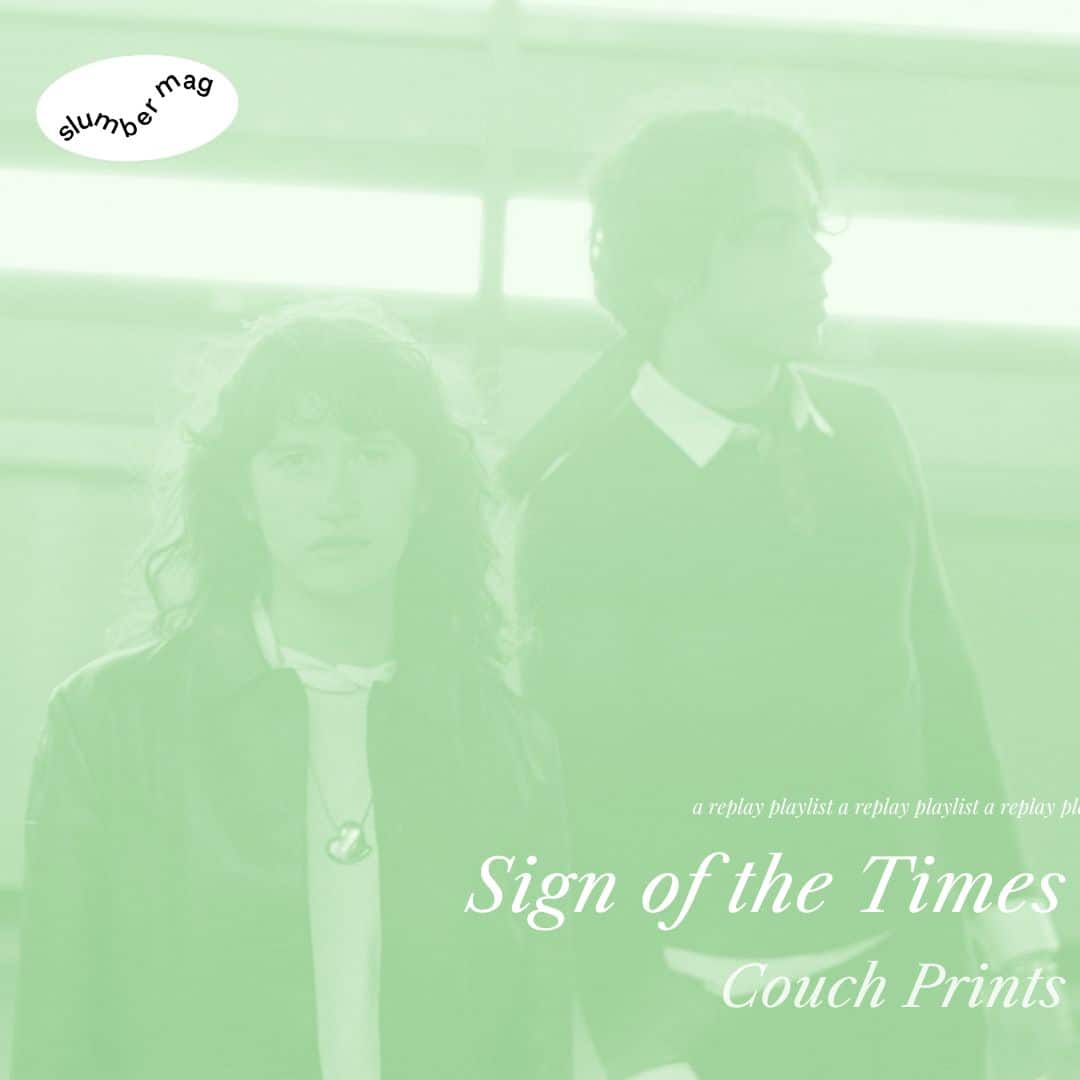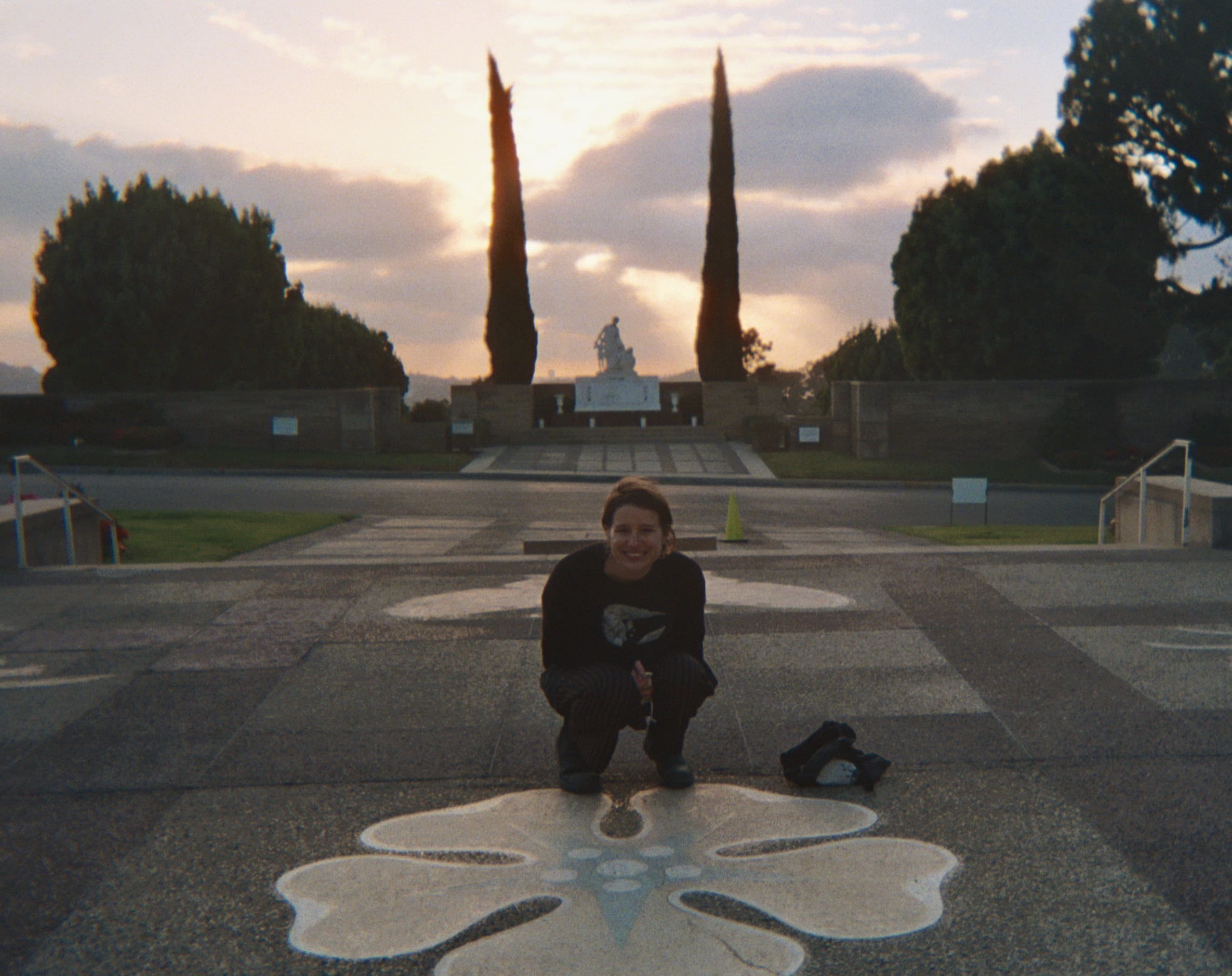Even though 2020 felt like it forced our lives to a grinding halt, Maryam Qudus has kept busy. Between engineering projects with Sad13 and Zelma Stone to dropping a new electropunk project, Spacemoth, the Bay Area powerhouse cannot wait to share more in 2021. Spacemoth’s music is spacey and edgy, bringing together confession (“Asking For You”) and irreverence (“This Shit”) under a blanket of gluey synths. When Qudus asks “When is this shit gonna end?” in response to rising reactionary bullshit in the U.S., I can’t help but angrily seek answers right along with her.
Before 2020 ended, we got the chance to catch up over the phone. We talked about rediscovering ABBA, disorienting puzzles, and the challenges (and rewards!) of getting into music engineering.
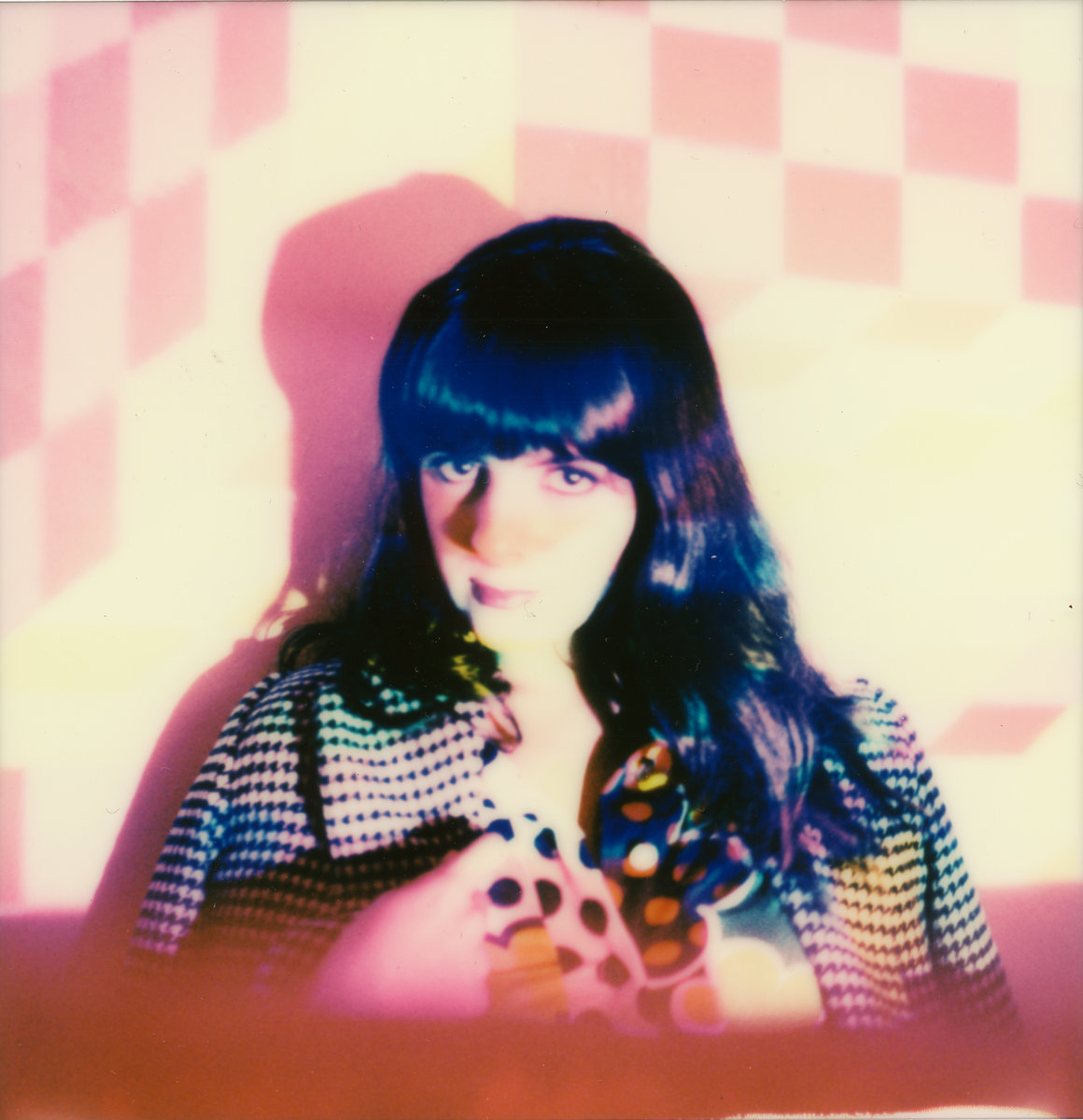
Slumber: If you could describe Spacemoth as a project in two words, what would they be?
Maryam Qudus: Oh God — should I just say that? I don’t want to choose boring words. The first word that comes to mind is Dizzying, and the second one is Broken. That’s referring more to how I feel my music sounds.
Slumber: Excellent! With it being December, everyone’s been posting their Wrapped lists, and it’s been revelatory. With that in mind, do you have any go-to guilty pleasure albums you’ve been listening to lately?
Maryam: So, my go-to albums lately are less guilty pleasures, I just openly love all records I listen to. I’ve loved these this year, and some even longer. I have certain records that I go to that bring me to a really happy place, like Duty Now for The Future by Devo. That’s not a happy record at all, but it’s just a record that I love putting on no matter what time of day it is or what I’m doing. I’ve been listening to Daft Punk’s Homework a lot, and in the mornings I’ve been listening to a lot of ambient music, so a lot of Harold Budd and Brian Eno cycling through in the mornings, like when I meditate. I recently picked up a record that I’ve been listening to a lot by this Moroccan artist named Abdou El Omari. He puts out music on Habibi Funk Records. I’ve been listening to a lot of those.
The other day, my husband put on ABBA. I had not listened to this record top to bottom before, just sitting in front of my record player and actively listening, it had always just been on in the background or in the mall. It was Voulez-Vous.
Slumber: Oh, now that is a classic!
Maryam: I listened to it for real and just, the production and the musicianship is out of this world. All the harmonies, everything. That’s basically what I’ve been listening to, lately!
Slumber: I like the sound of it! So, imagine the first big party after quarantine. We’re all safe and inoculated, and you are the DJ. What is really gonna make that playlist go hard?
Maryam: Oh man, definitely Daft Punk. It’s been the music where, on days where I’m feeling just horrible, it really turned my mood around. Yeah, Daft Punk for sure. I’ve also been listening to a lot of LCD Soundsystem, so that’ll be on that playlist. I think my playlist would be mid tempo sad-and-boring, but fun? It might sound weird, but that’s just what I would be listening to for a 2021 party playlist.
Slumber: Sweet, fingers crossed it’ll be 2021.
Maryam: Maybe 2022, we’ll see. ‘21 might be wishful thinking.
“This year has been really hard, but I’ve been able to find some light in some of it by cracking jokes and making the best out of it all.”
Slumber: What was the most recent thing that really made you laugh?
Maryam: I know that I was laughing at something super hard last night, but I just can’t remember. Isn’t that funny? To have such a distinct, deep-in-your-belly laugh, and then 12 hours later being like “Yeah, I can’t remember what that was about.” Most of my laughs these days have been with my husband because we’ve just been around each other this whole time. We’ve been spending a lot of time together and haven’t really been seeing anybody else. We work on a lot of projects with people together — we’ve got their music in our hands but we’re not really talking to the musicians that much because everything’s remote right now. I know that I’ve had a lot of really heavy laughs this year, and if it’s been with anybody, it’s been with him. Who knows what we were laughing at, there’ve been too many moments to remember.
Slumber: That’s what’s most important! It’s not about the what, at the end of the day, as long as you get to laugh enough.
Maryam: I think so, too. This year has been really hard, but I’ve been able to find some light in some of it by cracking jokes and making the best out of it all.
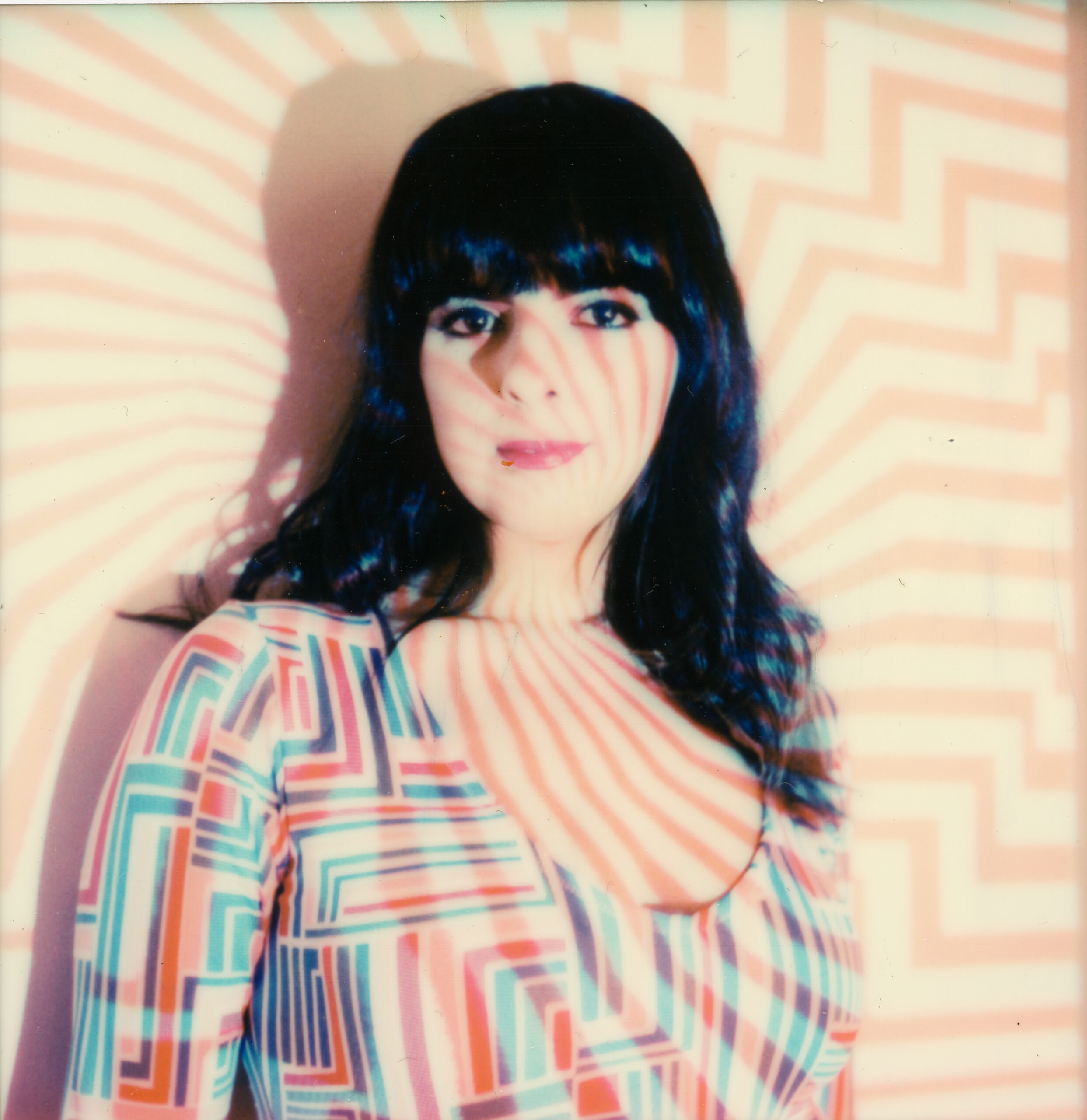
Slumber: You’ve mentioned that, as an Afghan-American woman, you’ve had to negotiate your own artistic/professional pathway in order to confront oppressive barriers. As a young person, were there any musicians who made you feel like you had the right to be the creative you wanted to be and to see in the world?
Maryam: Growing up, rock and alternative music in general made me feel like I could do whatever I wanted because it seemed to be more rebellious. I remember listening to what my siblings were listening to when I was really young. My siblings are 8-10 years older than me, so I listened to a lot of Depeche Mode. Depeche Mode was one of the first concerts I remember going to when I was about 13. Depeche Mode came to be the band I’d listen to and sing along to in my room, you know? In general, when I was young, music really did make me feel like I could do what I wanted because it made me feel so safe and protected.
Having that outlet of playing guitar and singing and recording myself was one of the things that made me feel as though, being a woman and growing up in an immigrant household where being a musician was not considered something to be proud of, I had an outlet to express myself and process those feelings. It made me feel like I could actually be proud of this, and seeing these musicians who are doing it, I thought there was no reason why I shouldn’t be able to do that, either.
“In general, when I was young, music really did make me feel like I could do what I wanted because it made me feel so safe and protected.”
Slumber: How has working with a diverse array of artists on production & engineering informed your creative practice as Spacemoth, and then reversing that, how has your background in performance informed your work in production?
Maryam: I learn so much from the people that I work with. Each individual person has their own distinct process of making music and writing songs. They have so many different ideas, including ideas that I would’ve never thought of. That’s the beauty of collaboration. You bring all these brains together, and all these ideas together, and then you make this wonderful piece of music.
The things I’ve learned from the people I work with have informed my music so much because along the way I have been learning so much that I didn’t know before. Someone will ask me: “Hey, this vocalist used this effect on this song, can you recreate that?” It’ll sound like someone’s vocalizing, say, into a phaser and then into a tremolo through reverb. I’ll make sure to remember that one if it sounds cool. Or, just experimenting with an assortment of guitar pedals I’ve never used before. There’s so much experimentation that happens just by default that I end up learning so much and gathering new tools. It’s that, but also just learning how people approach their music. It’s even the vibe. Someone will comment on how the lighting made them feel really nice, and I’ll remember that and bring it into my own practice and consider how lighting informs the process. Sometimes, people like to bring candles to the studio and have everything be candlelit.
All of those things inspire music, and I try to remember that when working on my own music that all of those factors matter. It starts with what your space feels like and the tools that you have, but also where your headspace is at. Making sure that, if you have a day where you’re working on something, you try to clear the cobwebs out, even just for a few hours. Like just yesterday, I was working on a song for my own record, and I gave my phone to my husband and said, “It’s 3:00, I’m not allowed to see this phone until 7:30.” He kept it away for me because I know that’s a distraction. I’ll lose traction by going on Twitter once and responding to someone, whatever. Or seeing a piece of bad news. All of those things affect the creative process. For all these factors, I just have to treat them all with care.
“That’s the beauty of collaboration. You bring all these brains together, and all these ideas together, and then you make this wonderful piece of music.”
Maryam: Performance has inspired engineering and production for me hugely. The recording experience in itself, as in going into the studio and working with these engineers, just truly inspired me to learn more. I found that, though I’ve worked with so many talented people and I love them, it was hard for me to communicate the things that I wanted because I didn’t have the vocabulary to express my desires. I would have these ideas or sounds in my head, and I thought it just wouldn’t be fair for me to say: “Here’s the sound in my brain, can you make this happen?” It’s not fair for me to expect someone to hear that. Even now, with the knowledge that I do have, I can only get so close.
I think the entire experience of being a musician in the recording studio has inspired me to learn more for my own music, but just in general: to learn more about how a song that was composed on an acoustic guitar can then turn into this beautiful production. It really made me excited about music and about helping other people get that vocabulary. I realized if I learned these tools, it would help my music, and it would also help me help others who are struggling. Both of those experiences have inspired my career path now.
Slumber: That’s super inspiring, I think it goes to show that musicians entering the studio can ask like, “What does the production process ask of me and what can I ask of it?”
Maryam: Totally. Part of what I love about music today is that recording music is really accessible. A lot of people can download Ableton or Logic or Pro Tools. Some of it’s subscription based, or if you’re a student there’s discounts, all that kind of stuff. Whatever form of financial state you’re in, there are so many ways to record music. I would encourage a lot of people to learn to use whatever program you have on your computer. Like, GarageBand comes on every Mac laptop. People will email me like, “I recorded this on GarageBand” and be embarrassed about that, but it’s so not anything to be embarrassed about. It’s still an audio file! You can send it to me, I’ll do my best with it, and if I have any guidance for you, I’m happy to give that to you, too.
I like when musicians are really willing to explore some of that stuff. It just makes the recording experience much better. You can go from just saying “this needs to be pumped up, it needs to be better” to saying “oh, maybe this needs a short reverb and not a long reverb.” Those little details are so helpful. I think it’s awesome that it can be so accessible for people to learn on their own.
On the other side of that, as a younger woman, trying to get into music technology was very intimidating. I remember when I was digging into tech, intimidating really is the word. So much of what kids are taught when they’re growing up is that, if you’re male, you can handle science and technology, but if you are any other gender, then you can’t handle it. Here’s a Barbie doll, here’s a kitchen playset, whatever. I think that has affected so much of the engrained feeling that we can’t possibly learn how to do something like using Logic or Pro Tools. I find that it’s a mental barrier for a lot of people and it takes a lot to get past it. I’ll acknowledge that psychological barrier, it’s there as well.
“As a younger woman, trying to get into music technology was very intimidating... so much of what kids are taught when they’re growing up is that, if you’re male, you can handle science and technology, but if you are any other gender, then you can’t handle it.”
Slumber: So real. I’ve been so fascinated with the color palettes on the single covers. This is really giving me early Stereolab vibes.
Maryam: I love Stereolab! They’re definitely an inspiration of mine.
Slumber: Perfect! What color/colors do you associate with Spacemoth?
Maryam: The colors I chose for the covers, I chose for particular reasons. Some of them are darker. “Asking For You” has a black and colorful cover, but that song is a little sadder. That was what I was trying to convey with that. “For The Last Time” is more melancholy, so I associate that with more yellows and pinks. Then, when I released “This Shit/Who I Was,” the red and the blue and the green were connected to a puzzle I was working on. It was like a ‘70s era pop art puzzle. It was a total brain melter because it was just a bunch of lines and shapes and colors, no structure. When I finished that puzzle, the colors really inspired me.
The color landscape for me feels so dreamy and bright. I love color blocking, I love bright, neon colors. When I talked to Stephanie, who designed the artwork for everything, I kept saying “Let’s make it brighter!” That was the main note for every revision. I like shockingly bright colors, in general.
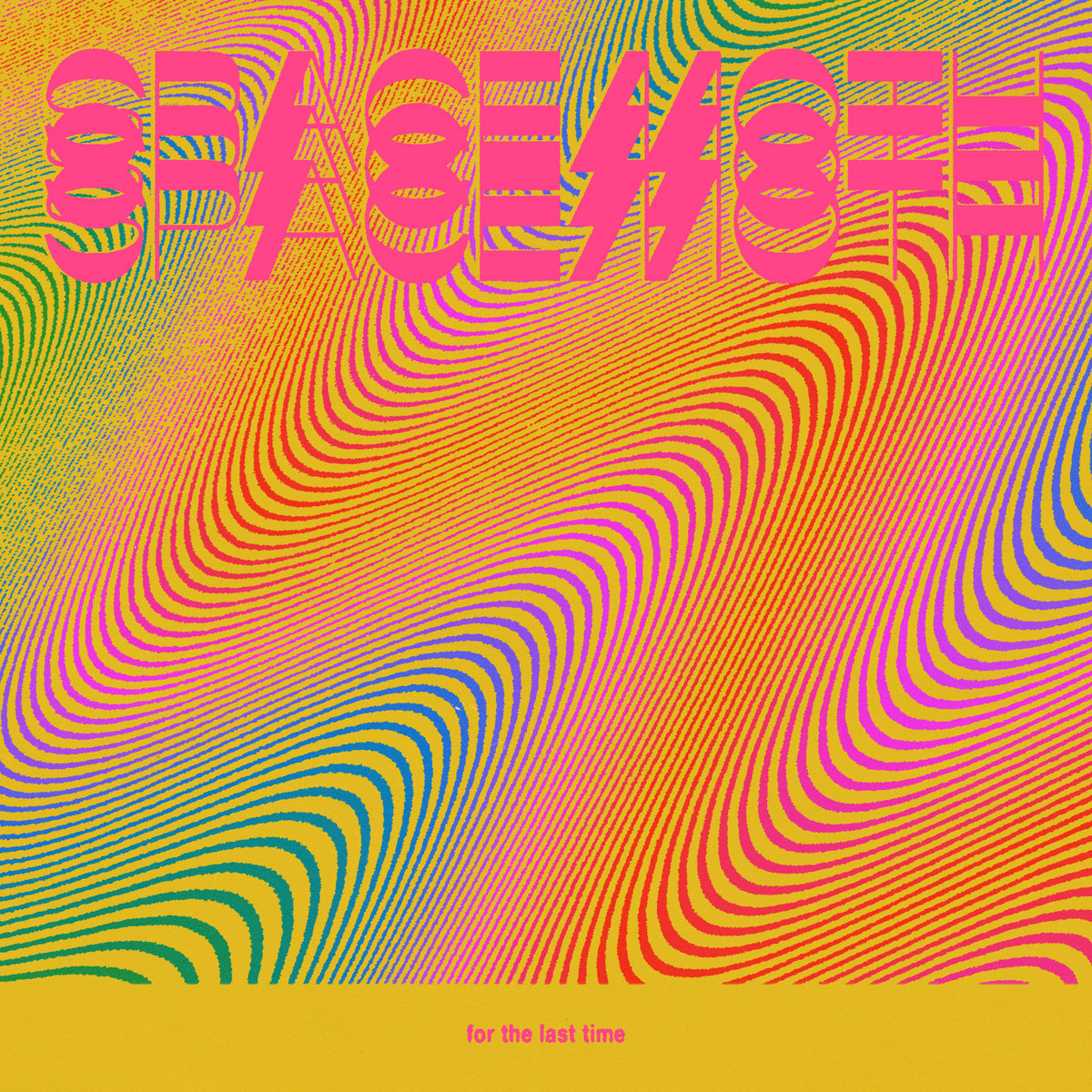
Slumber: What’s one thing you want to do before 2020 ends?
Maryam: Ooo! Before 2020 ends, I want to do two things. I want to finish my record. I have a lot of time set aside this month to finish these up. Then, secondly, I would like to go take the ferry and revisit Angel Island. I visited last month and it was such a pleasant outdoor experience, to just walk down this paved path and see these views of the entire Bay Area. You see the Golden Gate Bridge, the Bay Bridge, Oakland, Berkeley, Richmond, you see all of it! I’m hoping that I can go one of these days for a little break for a day.
Slumber: Sweet! And once that’s behind you, what’s next for Spacemoth in 2021?
Maryam: Well, my hope is to release an album next year. That is dependent on me finishing that album, goal being this month [December]. Releasing a record is my main goal, and I’d like to make more music along the way. Aside from that, I want to continue to work with artists and musicians on their stuff. That’s a part of it all, too, I love it so much and it inspires my music all the time.
Slumber: Great resolutions. Do you have any advice for anybody reading this right now?
Maryam: The advice that I would give is connected to one of the things that has been beneficial for me lately: start a morning routine. Finding things that keep you grounded – like going on a run, playing guitar, drinking a glass of water, meditating, whatever it is that makes you feel really great – do it first thing in the morning.
Even if you don’t think you want to do it but know it’s good for you. It’s one of those things that makes us feel better as people and make us better for the people around us. My number one thing is simply: take care of yourself, in whatever way it is you can. If you can do that, you will hopefully have some positive results from that!
Listen to Spacemoth’s latest single “For the Last Time” below:
